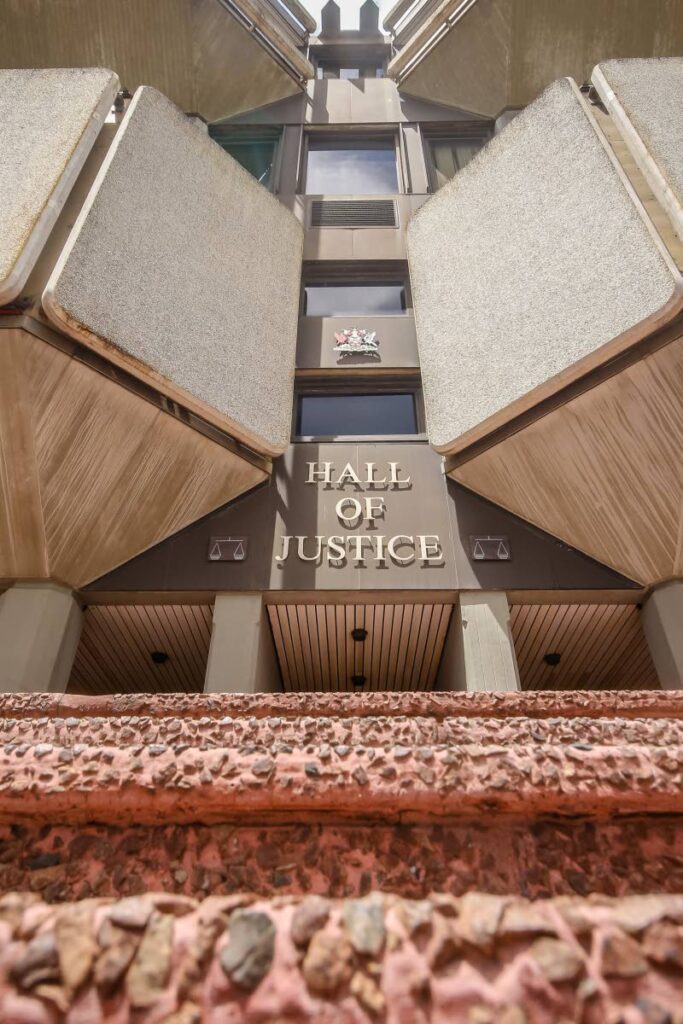Appeal Court orders retrial for man accused of sexual offence

A BARATARIA man previously convicted of having sex with a minor under 14 some 18 years ago has successfully challenged his appeal in the Court of Appeal, which has also provided guidance to judges and magistrates on the use of deoxyribonucleic acid (DNA) evidence in criminal trials.
In December 2018, Emerson “Roger” Richardson was convicted of one count in a three-count indictment and was sentenced to 23 years of hard labour by Justice Hayden St Clair-Douglas in January the following year.
At his appeal, Richardson raised concerns over the DNA evidence presented in the case which he solicited at trial.
Justices of Appeal Alice Yorke-Soo Hon, Mark Mohammed and Maria Wilson found merit in some of the arguments advanced by Richardson’s lead counsel Sophia Chote, SC.
In a joint decision, the judge noted, “With the upsurge in the use of DNA evidence in the criminal assizes,” they chose to provide guidance on the minimum content required in trials.
They also noted that because of infrastructural issues at the Forensic Science Centre, DNA evidence will, more likely than not, be in the form of an “evaluative opinion as opposed to statistical match probabilities.”
The Court of Appeal said based on the type of DNA evidence adduced, evaluative or statistical, a trial judge would be required to appropriately tailor his or her directions to suit.
They provided 17 guidelines for use in the criminal courts which will also be applicable to summary trials. They said there was no strict formulation of words to be told to a jury, as each direction would depend on the factual scenario of each case and whether statistical evidence or probabilities were relied on.
Key among those guidelines, which touched on the grounds of appeal upheld by the judges, was that a direction must contain a brief summary of the evidence given by an expert, including what DNA meant.
In their decision, the judges were of the view that the prosecution's failure to lead evidence as to what DNA evidence meant was a “material irregularity.”
“Based on the technical and scientific nature of DNA, it cannot be assumed that jurors would know what DNA and DNA evidence means to begin with.”
They also found as a “material irregularity” the failure of the prosecution to elicit from the FSC’s scientific officer her experience in DNA testing.
In their guidelines, they suggested judges give a brief summary of the expert’s evidence, including what constituted a full or partial profile and how the DNA evidence may be relevant in the trial process.
They further advised on how to treat disputes on the reliability of the testing mechanisms; how judges are to treat cases that involve statistical evidence and the limitation in the database used; where there is more than one expert with differing views; as well as how to deal with evidence of DNA matches and in cases where there are none.
On an argument that the verdicts of the jury in Richardson’s case were inconsistent, since he was found not guilty of two counts but guilty of the third, the judges disagreed, saying the jury’s verdicts were reasonable based on the evidence in the case.
The judges, however, had strong comments on the conduct of the prosecutor at the trial in her closing address to the jury, particularly her “mischaracterisation of the DNA evidence,” which they said was of greater concern.
“We find that prosecuting counsel’s conduct was reprehensible, gross and prejudicial and would have undermined the integrity of the trial and the judge’s directions.”
They said the judge failed to directly address the errors and the directions given were not sufficiently robust to disabuse the minds of the jurors of the prosecutor's many errors.
“It is clear to us that prosecuting counsel was so focused on obtaining guilty verdicts, she lost sight of her role as a minister of justice and thus fell short of the code of conduct which she was required to observe."
They said her conduct undermined the integrity of the trial and substantially prejudiced the fair trial of the appellant and such prejudice could not be cured by any directions given by the judge.
They were also critical of the prosecutor’s reference to the charges against Richardson three time as “rape.” They said while it was “improper” and could have confused the jury, the judge’s directions on the nature of the charges would have alleviated any confusion.
On deciding whether to order a retrial – which Chote resisted on the basis of the time of the alleged offence as well as the delay in the system to guarantee a speedy hearing – Mohammed said while it was the reality that there was some delay because of the backlog of cases, the offence was a serious and prevalent one. He said the public interest would be served in ordering a new trial.
They also said apart from the technical errors, which led to the quashing of the conviction, there was also additional evidence. The case will be sent back to the assizes and put on a judge’s docket for case management to begin no later than April 8.
Richardson was granted $60,000 bail. He is to report to the Barataria police station twice weekly, and must surrender his passport and not communicate with the victim or her relatives.
Richardson was also represented by Allan Andersson. Resisting the appeal were Assistant DPPs Nigel Pilgrim and Sabrina Dougdeen-Jaglal.
Chief public defender Hasine Shaikh, deputy public defender Raphael Morgan, and public defenders Candace Nanton, Delecia Helwig-Robertson and three others from the department appeared as interested parties in the appeal, also providing the court with guidance on DNA evidence.


Comments
"Appeal Court orders retrial for man accused of sexual offence"